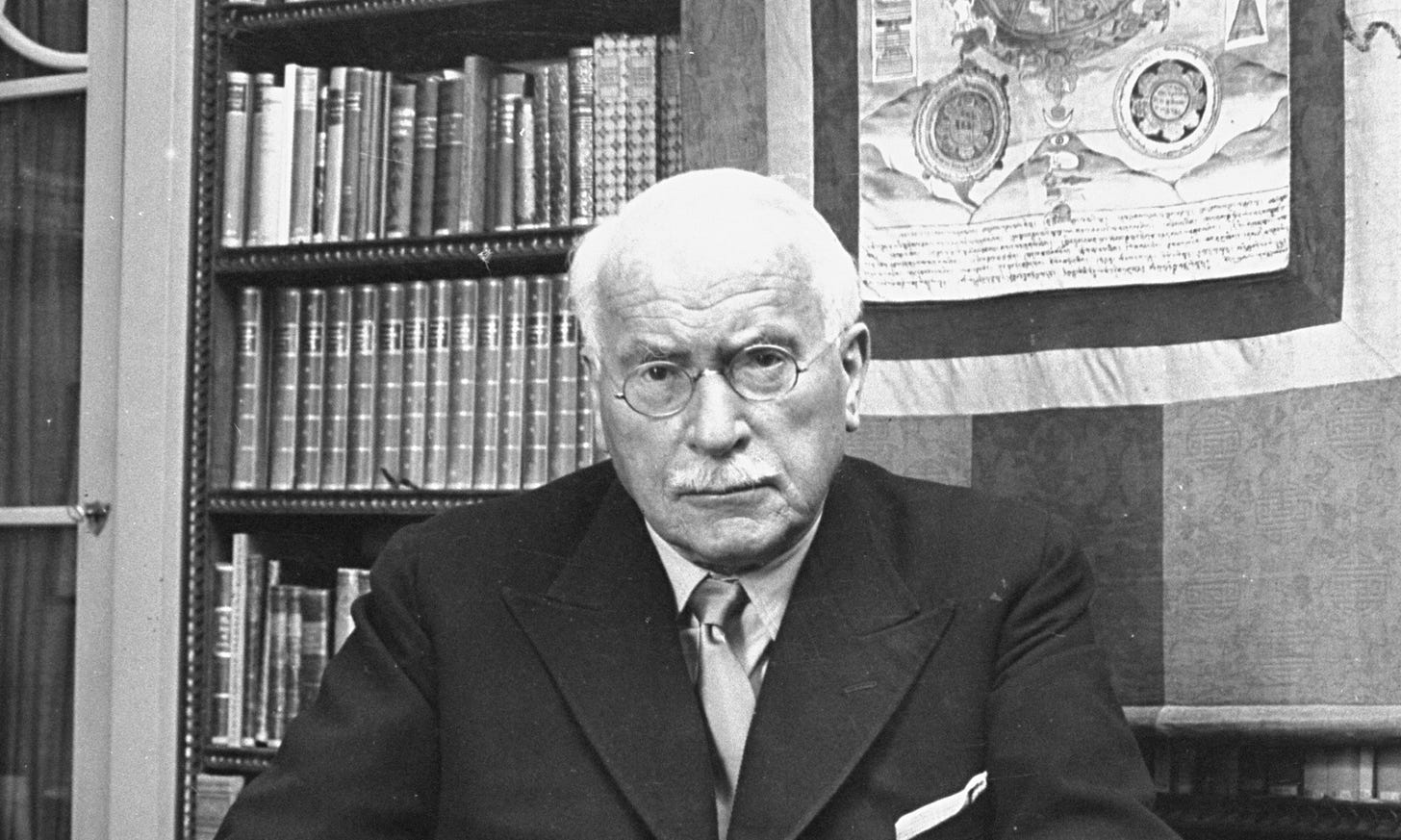Carl Jung: Individuation - Is it Authentic Self-Discovery or Showmanship?
Imagine a life lived entirely in the glare of an audience. Every thought, every emotion, every action meticulously curated, polished, and presented for approval. Is this existence, this constant performance, a genuine reflection of the self, or merely a sophisticated act of showmanship? The pursuit of authenticity has become a siren song in our modern world, a quest that echoes through the canyons of social media and the halls of personal development. But what happens when the search for the “real” self becomes another performance, another role to play? This brings us to the heart of Carl Jung's profound and often misunderstood concept of individuation.
The Shadow of the Self: Diving into Jung's World
Carl Jung, the Swiss psychiatrist and psychoanalyst, offered a revolutionary map to the human psyche. Unlike Freud, his mentor-turned-rival, Jung didn't see the unconscious as merely a repository of repressed desires. Instead, he envisioned it as a vast, vibrant landscape filled with archetypes, symbols, and the potential for profound self-discovery. At the core of Jung's philosophy lies the concept of individuation, the lifelong process of integrating the conscious and unconscious aspects of the self to become a whole, complete individual.
But what does this integration actually entail? It begins with acknowledging and confronting the Shadow, that often-hidden part of ourselves that contains the rejected, denied, and repressed aspects of our personality. As Jung himself put it:
"One does not become enlightened by imagining figures of light, but by making the darkness conscious."
This is no easy task. The Shadow resists scrutiny, clinging to the vulnerabilities and insecurities we desperately try to hide, even from ourselves. This act of self-confrontation is the starting point of individuation, a journey of self-discovery, integration, and ultimately, wholeness.
The Allure of the Persona: The Mask We Wear
We all wear masks. It’s a simple fact of social life. Jung termed these masks "personas," the roles we adopt to navigate the world – the professional self, the social butterfly, the dutiful child. The persona is essential for functioning in society. But the danger lies in mistaking the persona for the authentic self. What happens when the mask becomes so deeply ingrained that it obscures the individual beneath?
In our age of constant connectivity and curated online identities, the allure of the persona is stronger than ever. Social media platforms provide an endless stage, where we can craft and project idealized versions of ourselves. Likes, followers, and validation become the metrics of our worth. Does this endless striving for external approval foster self-discovery, or does it, ironically, lead us further away from our true selves?
Consider the modern-day guru, the influencer hawking self-help techniques, and the constant stream of carefully constructed narratives. Are these individuals genuinely pursuing individuation, or are they simply selling a performance of it? The lines blur, and the potential for manipulation and misdirection grows.
The Dangers of External Validation
The pursuit of external validation is a powerful, often unconscious, driver. We crave approval, belonging, and recognition. But basing our sense of self-worth on external factors is a perilous game. The applause is fleeting, the praise can be fickle, and the critic is always lurking. Focusing solely on external validation can lead to a fragmented sense of self, perpetually seeking external sources to fill an inner void.
Individuation, in contrast, emphasizes internal validation. It’s about developing a strong sense of self, rooted in self-awareness and self-acceptance, rather than relying on the fleeting judgments of others. This involves confronting our fears, insecurities, and weaknesses—the Shadow aspects we often try to conceal. It's a difficult but necessary journey toward self-realization.
Individuation in the Digital Age: A Call to Authenticity
The digital age presents unique challenges to the process of individuation. The constant bombardment of information, the pressure to conform, and the ease with which we can create and project an idealized image of ourselves can all hinder genuine self-discovery.
How do we navigate this complex landscape and stay true to ourselves? Jung's framework offers a valuable compass. Here are a few key principles to consider:
Embrace Self-Reflection: Make time for introspection, journaling, and quiet contemplation.
Confront Your Shadow: Acknowledge and integrate the parts of yourself you tend to disown.
Question External Validation: Seek inner fulfillment over external approval.
Cultivate Authenticity: Be true to your values and express your genuine self.
This process is not easy, and it requires constant vigilance and self-awareness. If you're interested in delving deeper, here's a video that explores these concepts further:
This video provides a powerful overview of individuation and its relevance in today’s world.
Unlock deeper insights with a 10% discount on the annual plan.
Support thoughtful analysis and join a growing community of readers committed to understanding the world through philosophy and reason.
Is it Genuine or a Performance? The Final Question
So, is the pursuit of individuation about authentic self-discovery, or has it become entangled with the trappings of showmanship? The answer, as with many complex questions, is nuanced. The potential for both exists. The challenge lies in distinguishing between genuine self-exploration and the performance of it. We must be vigilant about the seductive power of external validation and the allure of projecting an idealized persona. The journey of individuation is not about presenting a flawless version of ourselves to the world, but about becoming fully, authentically human, with all our flaws and imperfections.
Individuation is not a destination but a lifelong process. It's a continuous journey of self-discovery, self-acceptance, and the courageous act of becoming who we truly are. It demands vulnerability, honesty, and a willingness to confront the darkness within. It is this work that distinguishes true self-discovery from mere showmanship.



